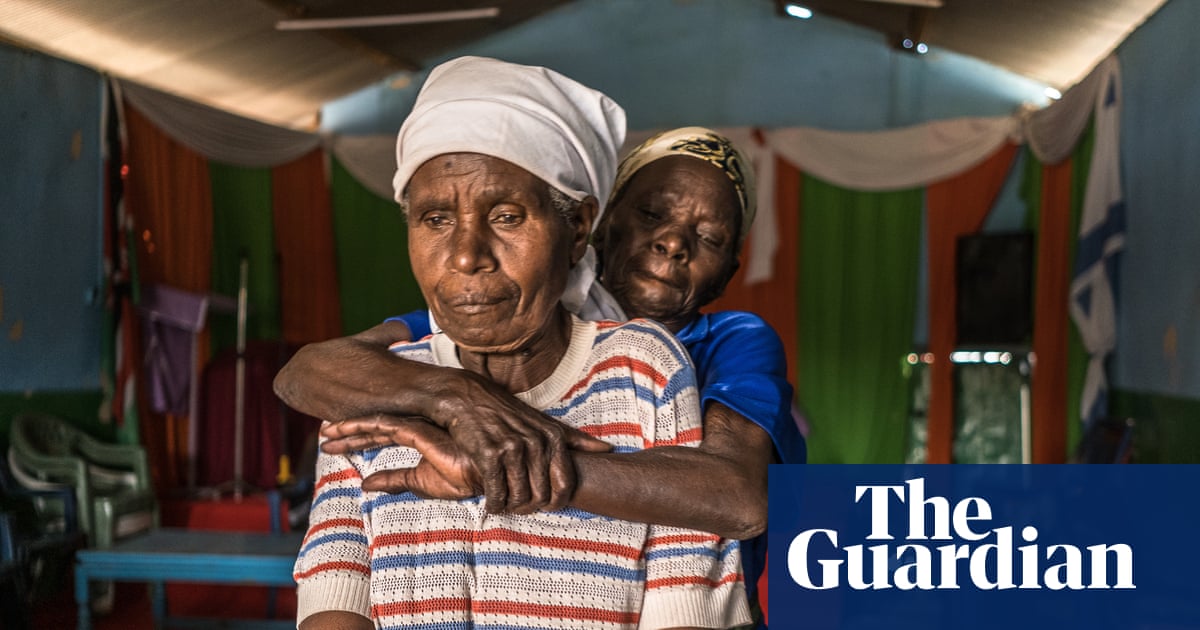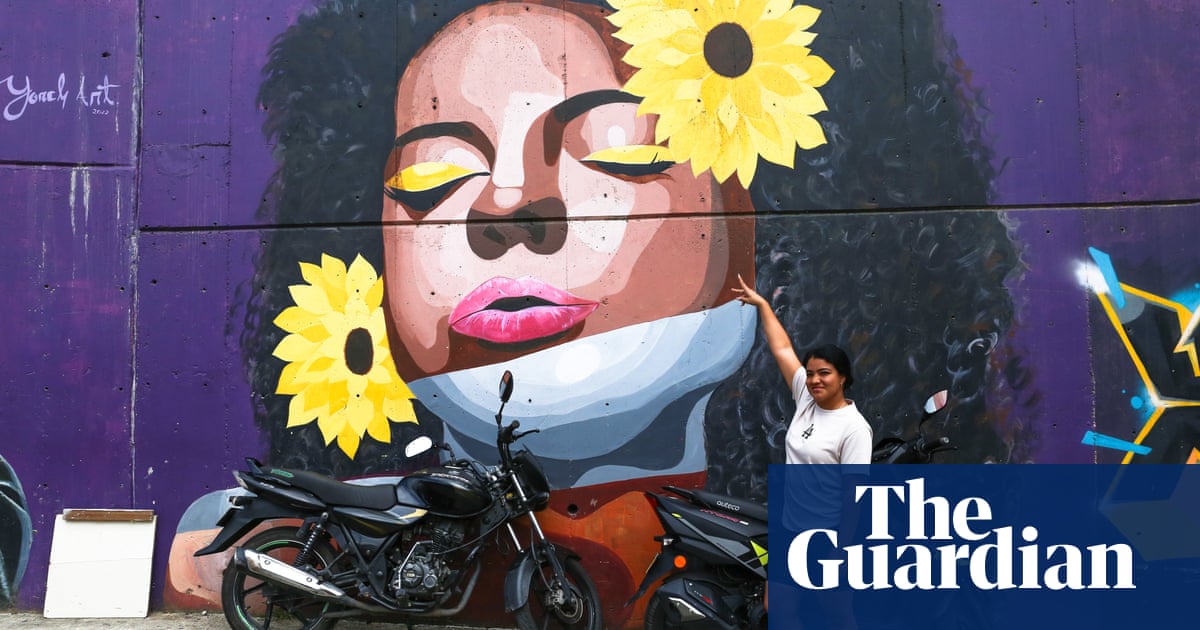
Beatrice Nyariara, 81, makes her way along the pathways of Korogocho settlement to the Church of the Lord Ministry. It’s a Thursday, and she is not going to a church service or for spiritual nourishment. She is about to to lead a self-defence class.
At the hall, a group of elderly women chat as they rearrange furniture to create space. “It has been a few weeks since we met and it is important to start with warming up,” Beatrice tells them as she demonstrates back stretches, side stretches and touching the floor. Some murmur and joke about how their bodies are struggling to keep up with Beatrice’s.
One picks up a punchbag and the rest form a line. Screams of “No! No! No! I don’t want anything to do with you!” ring through the air as each woman takes her turn to punch the bag.
The women are members of Shosho Jikinge, Swahili for “Grandmother protect yourself”, a group of 20 aged between 55 and 90 who all live in Korogocho and are learning how to defend themselves from sexual assault and other crimes, such as mugging and robbery.
About 10km (six miles) north-east of the city centre, Korogocho is one of Nairobi’s largest and most densely populated informal settlements – its name is Swahili for “crowded shoulder to shoulder”. It is also one of the most dangerous, enduring high unemployment rates, poverty, drug and alcohol abuse, domestic violence and crime.
“We started this group in 2007 when we realised that elderly women had become easy targets of rape and abuse,” says Nyariara, a founding member. She was trained for six months by volunteer martial arts enthusiasts and has been leading classes since 2014.
There is no official data on sexual assaults on older women in Kenya. However, according to the Kenya Demographic and Health Survey 2022 released this month, 13% of all women reported experiencing sexual violence at some point in their lives, and 7% had met with sexual violence in the past year. The report also notes that 34% of women in Kenya have experienced physical violence since age 15, including 16% in the past year.
Gladys Wanjiku, 80, another Korogocho resident and member of the class, says criminals take advantage of the fact that most elderly women are widows who live by themselves. She says attackers follow elderly women to their houses during the day to see where they live, then return at night. “Locking the door does not help because they come to the house and rip off parts of the wall as it’s made of recycled tins or corrugated iron. They rape and then strangle their victim,” she adds.
Screaming for help doesn’t help either as gender-based violence is so prevalent in the area that neighbours assume any shouts are from a fight between a couple. The group decided they needed to raise the alarm in a manner that would ensure people would respond. “Today, when the community hears ‘No! No! No! I don’t want anything to do with you’, they know it is an elderly woman being attacked and they come to our rescue,” says Wanjiku.
Rosemary Ouma, 55, had heard about the group but never joined. Her wake-up call came in 2019 when a close friend was raped, killed and dumped at a nearby river. “I was with her in the evening at the market and the next morning my neighbour woke me asking if I had heard what happened to my friend. I rushed to the scene and was shocked. It was very sad what they did to her.”
Joining the group has helped her learn defence tactics and stay fit. “Most of us have health issues, such as arthritis and blood pressure, so when we meet, we do some exercises, which is good for the body,” she says.
The training teaches the women how to hit assailants hard on the parts that hurt the most. Nyariara’s face shines with pride as she tells of her encounter with an attacker. A few years ago, she was woken up by her door creaking as someone tried to force it open. When she asked who it was, a male voice told her he’d force the door open if she didn’t let him in.
“I warned him that if I opened the door, one of us would wind up in a police cell and the other in the mortuary. He assumed I would open the door and wait for him to get in, but I opened it and walked out, poking his eyes with my fingers. He was startled and retreated. I followed him and punched him on his ‘potatoes’.”
The attacker fell and Nyariara continued stepping on his testicles as she screamed for help. She had already subdued the intruder by the time her neighbours arrived. “He was screaming: ‘Granny don’t kill me’. This information went across Korogocho and made them fear me,” she says, smiling.
Sexual assaults on older women are partly a result of myths about their powers. Some young men believe sex with an elderly woman can cure HIV and Aids, while others believe it can cleanse their sins after committing crimes.
Fred Ogolla, team leader at Restoring Dignity, a community organisation that supports elderly people in Korogocho, says raising awareness in the community has helped t0 debunk the myths, and today the community is safer.
Apart from self-defence training, the women also run a savings club, known as Chama. For the self-defence class, they contribute 20 Kenyan shillings (13p) a week. “This money comes in handy when a member is unwell or loses a family member,” says Nyariara.
Yet members find it challenging to contribute consistently because they don’t have a steady income. “Sadly, none of us has been included in the government’s senior citizen’s cash transfer programme – even though we all qualify,” she says. This means some members stay away from the training. “If you didn’t have supper and breakfast, training is the last thing you’d think of,” says Nyariara.












